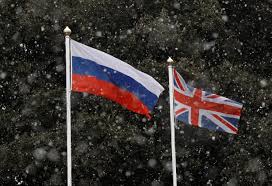
Breaking News
 In a jaw-dropping revelation, Sec. Brooke Rollins found 5,000 DEAD PEOPLE getting SNAP,...
In a jaw-dropping revelation, Sec. Brooke Rollins found 5,000 DEAD PEOPLE getting SNAP,...
 ALERT: The Most Important Silver Update You'll See - Mike Maloney w/Alan Hibbard
ALERT: The Most Important Silver Update You'll See - Mike Maloney w/Alan Hibbard
 Interview 1987 – News You WON'T See On The BBC! (NWNW #609)
Interview 1987 – News You WON'T See On The BBC! (NWNW #609)
 Foreclosures & Evictions Are Increasing Every Single Month
Foreclosures & Evictions Are Increasing Every Single Month
Top Tech News
 Blue Origin New Glenn 2 Next Launch and How Many Launches in 2026 and 2027
Blue Origin New Glenn 2 Next Launch and How Many Launches in 2026 and 2027
 China's thorium reactor aims to fuse power and parity
China's thorium reactor aims to fuse power and parity
 Ancient way to create penicillin, a medicine from ancient era
Ancient way to create penicillin, a medicine from ancient era
 Goodbye, Cavities? Scientists Just Found a Way to Regrow Tooth Enamel
Goodbye, Cavities? Scientists Just Found a Way to Regrow Tooth Enamel
 Scientists Say They've Figured Out How to Transcribe Your Thoughts From an MRI Scan
Scientists Say They've Figured Out How to Transcribe Your Thoughts From an MRI Scan
 SanDisk stuffed 1 TB of storage into the smallest Type-C thumb drive ever
SanDisk stuffed 1 TB of storage into the smallest Type-C thumb drive ever
 Calling Dr. Grok. Can AI Do Better than Your Primary Physician?
Calling Dr. Grok. Can AI Do Better than Your Primary Physician?
 HUGE 32kWh LiFePO4 DIY Battery w/ 628Ah Cells! 90 Minute Build
HUGE 32kWh LiFePO4 DIY Battery w/ 628Ah Cells! 90 Minute Build
 What Has Bitcoin Become 17 Years After Satoshi Nakamoto Published The Whitepaper?
What Has Bitcoin Become 17 Years After Satoshi Nakamoto Published The Whitepaper?
How To Start War With Russia – A British Think Tank Has Ideas

Ukraine's Hardest Winter – Foreign Affairs, Nov 11 2025
With the Donbas in Peril, Europe Must Pressure Russia Now
I'll leave the dozens of outright lies, false assertions and delusions therein for others to mock.
Waitling's main thesis is that more (economic) pressure on Russia will somehow press it towards a ceasefire without concessions from the Ukrainian side. But his suggestions on how to do that are all designed to drag Europe into an even more direct battle with Russia.
To support the Ukrainian campaign against Russia's oil industry the Europeans should close the Strait of Denmark:
For Ukraine's international partners, the question is whether they are prepared to match Ukraine's campaign against Russia's oil infrastructure with comparable real rather than performative pressure on Russia's economy. Above all, this means targeting Russia's shadow fleet: the hundreds of decrepit tankers, operating under flags of convenience, often without insurance or trained crew, to move its oil to India and China. This will require denying the 80 percent of Russian seaborne oil exports that pass through the Strait of Denmark and threatening secondary sanctions against the ports where shadow fleet vessels unload.
…
Some European governments—including Denmark—have cited the 1857 Treaty of Copenhagen, an international agreement that established tariff-free transit of commercial shipping through Danish waters, as a legal barrier to action. But this is an excuse rather than a real obstacle. The countries that have a Baltic coastline today, excluding Russia, could agree to a new treaty requiring ships to meet certain standards of insurance and certification to be allowed to navigate the Baltic—for example, on grounds of ecological protection. Since the aging vessels of the shadow fleet do not meet these requirements, such a treaty would deny them entry into the straits. This would not impinge on the principle of tariff-free transit for commercial shipping through Danish waters.

 Unbanked In A Connected World
Unbanked In A Connected World

